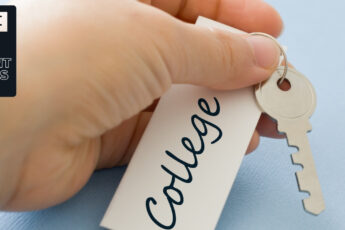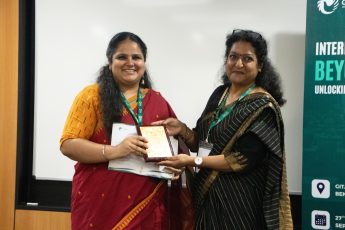Horizons: Discovering new academic pathways and overcoming psychological biases in college decision-baking
Selecting the most suitable academic pathway and best-fit university — critical foundations for personal, professional and intellectual growth — can be a daunting task for students. Often, their decisions are influenced by psychological biases, which may lead them to make choices that do not align with their individual interests or goals.
Common biases include status quo bias (making decisions based on current situations), herd mentality (choosing based on group behaviour rather than individual preferences) and overconfidence (overestimating one’s abilities and knowledge).

Career counsellors play a crucial role in helping students recognize and overcome these biases, empowering them to make informed decisions that align with their unique aspirations and potential.
Deep dive into psychological biases in college decision-making
Psychological biases are cognitive shortcuts to simplify difficult decisions which are not always based on rational thinking or proofs. In direct to context of college decision-making, students might not realise how these can affect their choices and might overlook important aspects that could better sync with their academic and personal goals.
1. Status quo:
Status quo bias leads students to favour familiar options, such as attending a college close to home, enrolling in a program that feels like a “safe” choice, or selecting a university solely because of its widespread recognition. As a result, potentially better-fit options that align more closely with their goals and interests may be overlooked.
2. Herd mentality:
The herd mentality often impacts college decision-making when student considers applying to a particular college or a specific subject which many others are opting for, without critically evaluating whether that choice aligns with their personal goals. The influence of peer groups, family expectations, or societal trends can block a student’s judgment, forcing them to make decisions based on external factors, resulting in dissatisfaction in future.
3. Overconfidence:Overconfidence shows up when students overestimate their abilities or knowledge, leading them to make wrong decisions without completely analysing all related information. Students believing they have all the answers about what school or program is best for them and decide based on which may lead to ignoring assessment of crucial factors like campus culture, program offerings, or long-term career outcomes.
The role of counsellors in helping students navigate biases
Given the strong influence that psychological biases can have on college decision-making process for students, it is important for career counsellors to help them recognise and address these biases. career counsellors serve as mentors to students and help them make thoughtful and informed decisions about their academic future. By fostering self-awareness and inculcating a structured decision-making processes, career counsellors can empower students to make more personalised about their college and career paths.
1. Promoting self-reflection and exploration:
One of the best ways career counsellors can help students is by encouraging self-reflection and exploration. Rather than just choosing the most familiar options by default, they can guide students analyse their personal interests, strengths, values and long-term goals. This can be done in more ways than one like interest inventories activities, strength and value assessment exercises that can help students gain a deeper understanding of their authentic academic and career pathway interests. Encouraging students to explore less conventional or niche academic fields can broaden their horizons by introducing a wider range of academic pathways, beyond the conventional choices that align with their passions can be a great value-add in this direction.
2. Encouraging critical evaluation and research:
Career counsellors should emphasise students on the importance of critical thinking and independent research. Students usually make decisions based on what is popular or trending but guidance from the counselors can help them to deep dive into all options more thoroughly. This includes not just looking at rankings and reputation but evaluating key pointers such as academic program offerings, faculty expertise, campus culture and potential career outcomes. Career counsellors can support the idea of students visiting campuses, talk to current students and alumni, connect with professors from departments of their subject interest, etc. Additionally, they can guide encourage students to compare different colleges and programs based on important factors like class size, support services, and overall fitment.
3. Mitigating overconfidence using realistic data and achievable goal-setting:
Career counsellors can help students manage overconfidence by providing them with realistic data and achievable goal-setting measures. While it is natural for students to feel confident in their abilities, counsellors can softly challenge them to consider the difficulties they may have to face in rigorous academic programs. They could guide students to understand the academic demands of competitive programs like pre-med or engineering, thereby encouraging them to have a reality check of their readiness for these paths. Additionally, they can help students in setting manageable short-term and long-term goals and expectations for their college journey like maintaining a certain GPA or exploring internship opportunities, that can help them gradually build self confidence and avoid the pitfalls of overestimating their skills or capabilities.
Conclusion
The college decision-making process is complicated and many students unknowingly fall prey to psychological biases that can hinder their ability to make informed, personalised choices. By understanding these factors and addressing them with a good amount of time on hand, students can develop a more reflective approach to their academic and career decisions. Career counsellors play a pivotal role in helping students recognise these biases and guide them through this decision-making process with emphasis on self-awareness, critical thinking and deeper exploration. With timely support, students can broaden their horizons, discover best fit academic pathways and make choices that are in sync with their interests and values.






Leave a Comment